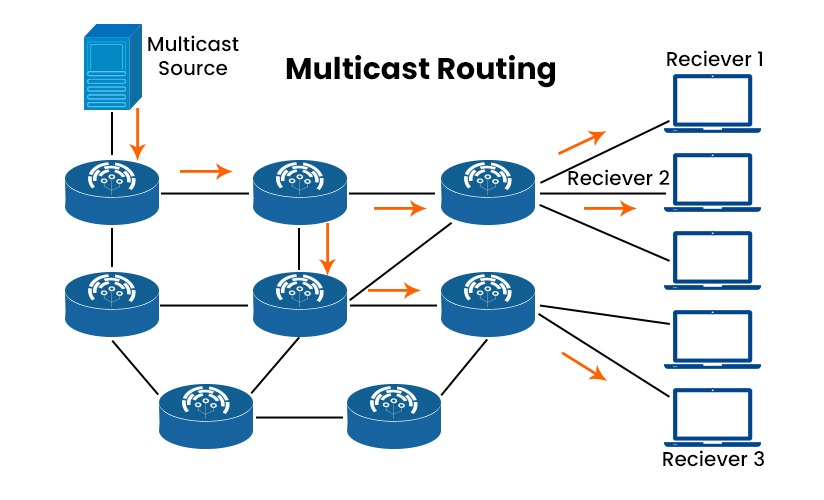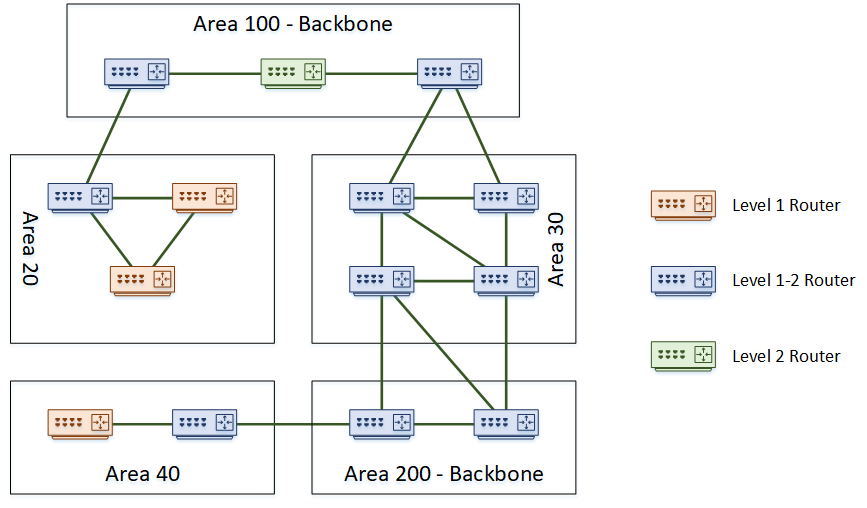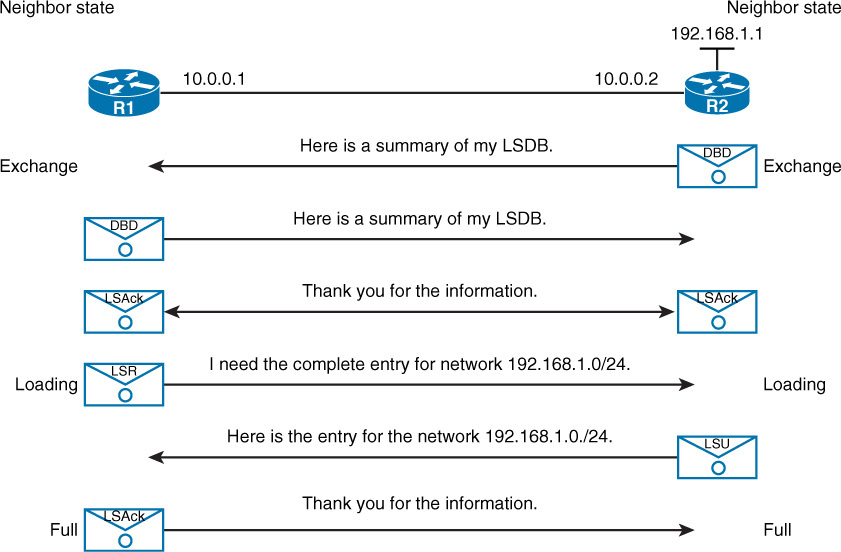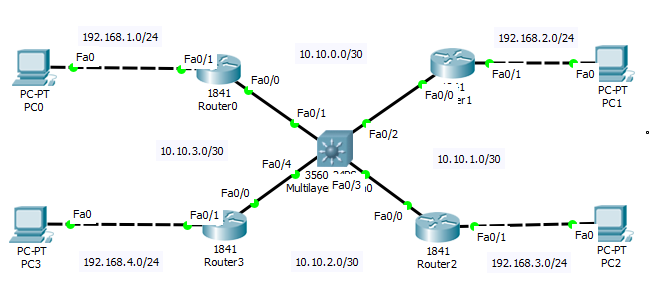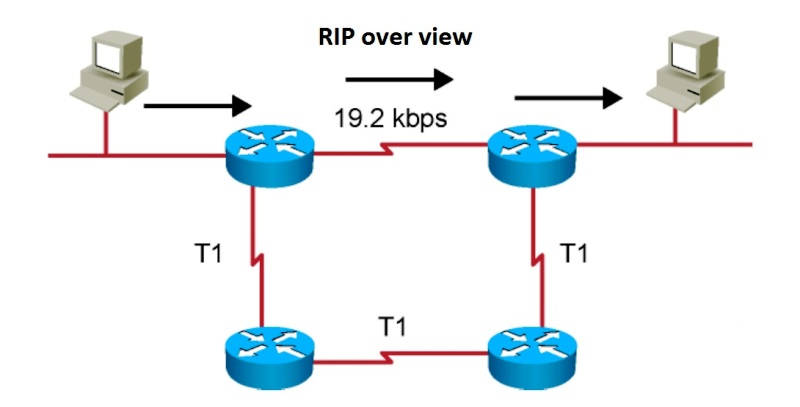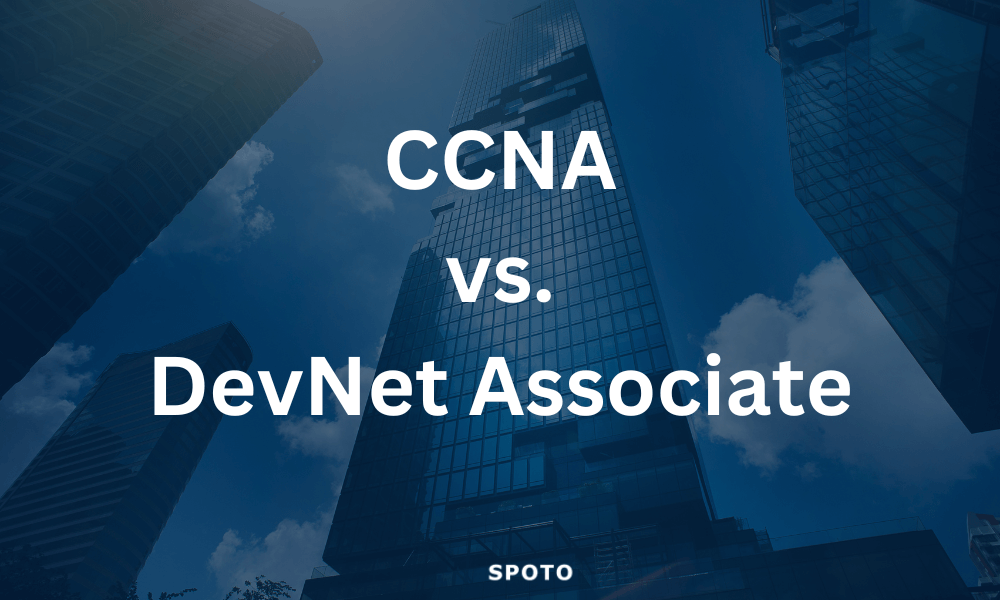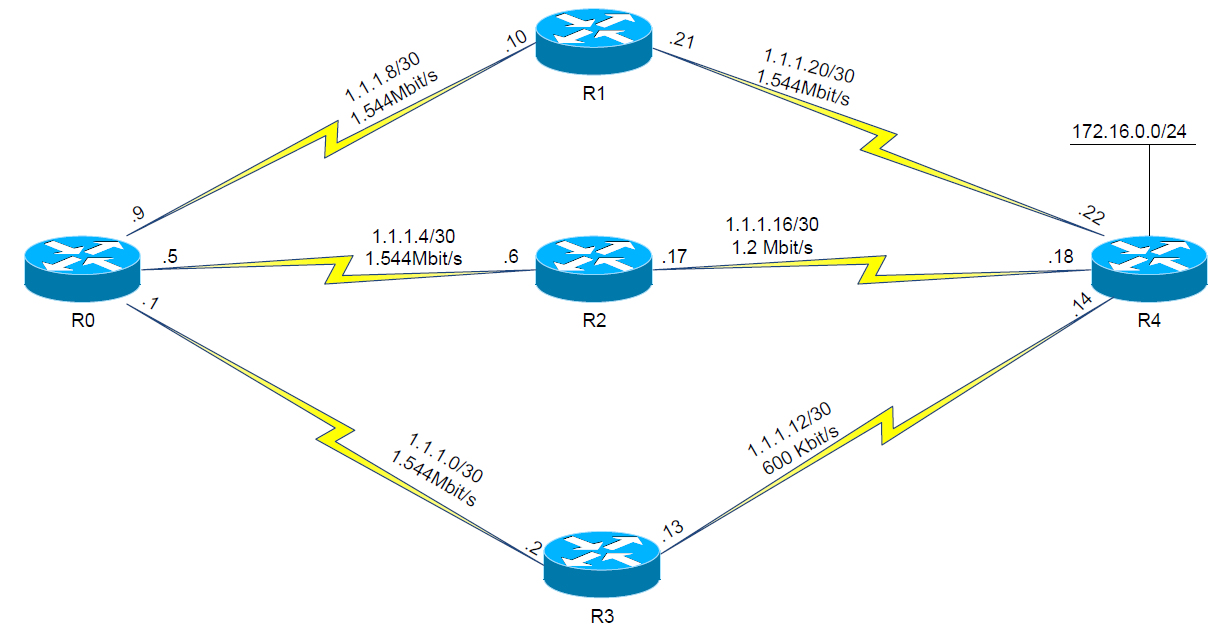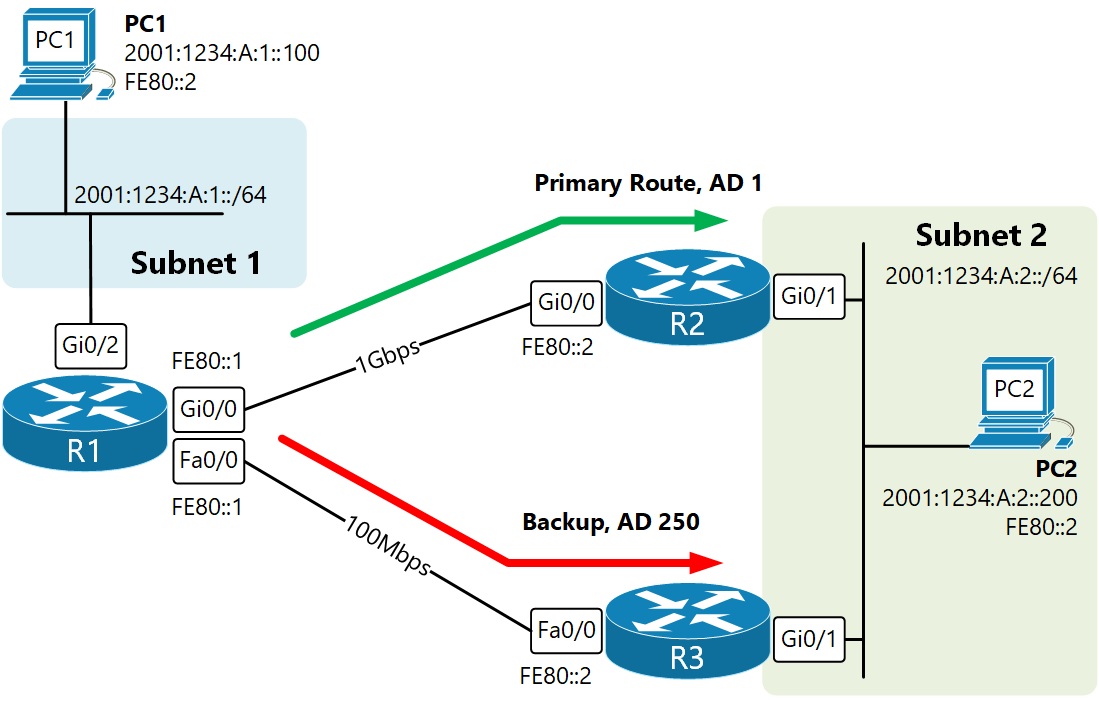TRUSTED BY THE SMARTEST TEAMS IN THE WORLD FOR CERTIFIED CANDIDATES
SPOTO Blogs
Useful learning materials to become certified IT personnel
-
- 1569
- SPOTO
- 2024-06-20 15:54
-
- 3190
- SPOTO
- 2024-06-20 15:47
-
- 1801
- SPOTO
- 2024-06-20 15:47
-
- 638
- SPOTO
- 2024-06-20 15:38
-
- 1244
- SPOTO
- 2024-06-20 15:33
-
- 4166
- SPOTO
- 2024-06-20 15:20
-
- 1898
- SPOTO
- 2024-06-20 10:35
-
- 633
- SPOTO
- 2024-06-19 17:34
-
- 861
- SPOTO
- 2024-06-19 17:29
TRUSTED BY THE SMARTEST TEAMS IN THE WORLD FOR CERTIFIED CANDIDATES
SPOTO Blogs
Useful learning materials to become certified IT personnel
-
- 1569
- SPOTO
- 2024-06-20 15:54
Table of ContentsIntroduction to Multicast RoutingMulticast BasicsInternet Group Management Protocol (IGMP)Protocol Independent Multicast (PIM)Multicast Border Gateway Protocol (MBGP)Multicast Source Discovery Protocol (MSDP)Bidirectional PIM (BIDIR-PIM) Introduction to Multicast Routing Multicast routing is an essential concept in modern network communication, particularly for efficiently distributing data to multiple recipients. Unlike unicast (one-to-one) or broadcast (one-to-all), multicast routing allows the delivery of information to a group of destinations simultaneously, reducing bandwidth consumption and improving network performance. In this blog, we'll explore key technical terms and concepts related to multicast routing as covered in Chapter 11 of the Cisco CCIE Routing and Switching v5.0 Official Cert Guide. Multicast Basics What is Multicast? Multicast is a method of communication where data is transmitted from one sender to multiple receivers. Unlike broadcast, which sends data to all devices on a network, multicast targets a specific group of receivers. This approach is highly efficient for applications like video conferencing, online streaming, and real-time data feeds. Multicast Addressing Multicast uses a specific range of IP addresses (224.0.0.0 to 239.255.255.255 for IPv4) to identify multicast groups. Devices interested in receiving multicast traffic must join the corresponding multicast group. The communication happens at both the network and data link layers, utilizing IP multicast addresses and MAC addresses designed for multicast. Internet Group Management Protocol (IGMP) What is IGMP? Internet Group Management Protocol (IGMP) is used by IPv4 systems to report their multicast group memberships to adjacent routers. IGMP plays a crucial role in managing multicast group membership on a local network, ensuring that routers know which devices want to receive specific multicast streams. IGMP Versions IGMPv1: The simplest form, allowing hosts to join multicast groups but not leave them explicitly. IGMPv2: Introduced the leave group message, enabling more efficient management of group membership. IGMPv3: Added support for source-specific multicast (SSM), allowing hosts to specify which sources they want to receive traffic from. Protocol Independent Multicast (PIM) Overview of PIM Protocol Independent Multicast (PIM) is a family of multicast routing protocols that provide efficient routing of multicast packets. PIM is called "protocol independent" because it can operate over various underlying unicast routing protocols. PIM Dense Mode (PIM-DM) PIM-DM is suitable for environments where multicast group members are densely distributed. It uses a flood-and-prune mechanism to build the multicast distribution tree. Initially, multicast traffic is flooded to all parts of the network, and then branches without receivers are pruned back. Flooding: Multicast traffic is sent to all routers. Pruning: Routers without group members send prune messages to stop receiving unwanted traffic. PIM Sparse Mode (PIM-SM) PIM-SM is designed for environments where multicast group members are sparsely distributed. It uses a rendezvous point (RP) to manage group membership and build multicast distribution trees more efficiently. Rendezvous Point (RP): A router that acts as the meeting point for multicast sources and receivers. Join/Prune Mechanism: Routers send join messages towards the RP to indicate interest in a multicast group. Prune messages are sent to stop receiving traffic when there are no interested members. Multicast Border Gateway Protocol (MBGP) What is MBGP? Multicast Border Gateway Protocol (MBGP) extends BGP to support multicast routing. It allows the exchange of multicast routing information between different autonomous systems, ensuring efficient delivery of multicast traffic across the internet. MBGP Functionality MBGP maintains separate routing tables for unicast and multicast routes, ensuring that multicast traffic follows optimal paths. This separation allows for more flexible and efficient routing of multicast traffic, especially in complex network environments. Multicast Source Discovery Protocol (MSDP) Overview of MSDP Multicast Source Discovery Protocol (MSDP) is used in conjunction with PIM-SM to enable multiple RPs to share information about active multicast sources. This helps in creating a seamless and efficient multicast routing infrastructure across multiple domains. MSDP Mechanics Source Advertisement (SA) Messages: Used by RPs to announce the presence of active multicast sources to other RPs. SA Caching: Routers cache received SA messages to quickly forward join messages to the appropriate sources. Bidirectional PIM (BIDIR-PIM) What is BIDIR-PIM? Bidirectional PIM (BIDIR-PIM) is a variant of PIM-SM that simplifies the multicast routing process by allowing traffic to flow bidirectionally on a single multicast distribution tree. This approach reduces the complexity and overhead associated with managing multiple unidirectional trees. Advantages of BIDIR-PIM Simplified Tree Management: Single bidirectional tree reduces the need for maintaining separate source-specific trees. Scalability: Better suited for large-scale multicast deployments with numerous group members and sources. Multicast routing is a powerful and efficient method for distributing data to multiple recipients in a network. Understanding the various protocols and mechanisms, such as IGMP, PIM, MBGP, MSDP, and BIDIR-PIM, is essential for designing and managing modern multicast-enabled networks. By leveraging these technologies, network engineers can optimize bandwidth usage and enhance the overall performance of multicast applications. Incorporating multicast routing into your network can significantly improve the delivery of data-intensive applications, ensuring a seamless and efficient user experience. As multicast technology continues to evolve, staying updated with the latest protocols and best practices will be crucial for any communications engineer working in today's dynamic networking landscape. -
- 3190
- SPOTO
- 2024-06-20 15:47
Table of ContentsWhat is IS-IS?IS-IS Network StructureIS-IS Metrics and Path Selection Intermediate System-to-Intermediate System (IS-IS) is a powerful and versatile routing protocol that plays a crucial role in the networking world. Originating from the OSI (Open Systems Interconnection) model, IS-IS has become a staple in modern IP routing due to its robust features and adaptability. This blog post explores the fundamental concepts of IS-IS, its operation, and key technical terms to help you gain a comprehensive understanding of this essential protocol. What is IS-IS? IS-IS stands for Intermediate System-to-Intermediate System, a routing protocol designed for moving information efficiently within a computer network, typically within an autonomous system such as a corporate network or an internet service provider (ISP). Unlike many protocols that are derived from the Internet Protocol Suite (TCP/IP), IS-IS originated from the OSI protocol suite, making it a bit unique in its operation and terminology. Key Components of IS-IS Intermediate Systems (IS): These are the routers in the IS-IS network. IS-IS refers to routers as Intermediate Systems, distinguishing between End Systems (ES), which are typically user devices like computers or smartphones. Network Service Access Point (NSAP) Addressing: IS-IS uses NSAP addresses for identifying systems and interfaces within the network. This addressing scheme is more flexible and hierarchical compared to traditional IP addressing. Link-State Protocol: IS-IS is a link-state routing protocol, meaning each router maintains a map of the network and uses algorithms to calculate the best path to each destination. This is in contrast to distance-vector protocols like RIP (Routing Information Protocol). IS-IS Network Structure IS-IS operates by dividing the network into areas. These areas help manage large networks by limiting the scope of routing updates, which improves efficiency and scalability. Areas: The IS-IS network can be divided into multiple areas. Each router belongs to an area, and areas are interconnected by backbone routers that share routing information. Levels: IS-IS supports a two-level hierarchy: Level 1: Intra-area routing. Routers in the same area exchange information. Level 2: Inter-area routing. Routers in different areas exchange information through Level 2 routers. Designated Intermediate System (DIS): In multi-access networks, such as Ethernet, a Designated Intermediate System is elected to manage the communication and reduce the overhead by sending out link-state information on behalf of all routers on that network segment. IS-IS Operation IS-IS routers exchange information using Protocol Data Units (PDUs). There are several types of PDUs, but the most important ones are: Hello PDUs (IIH - IS-IS Hello): These are used to establish and maintain neighbor relationships. Routers send Hello PDUs to identify themselves and discover other routers on the network. Link State PDUs (LSPs): These contain information about the router’s links and are used to build a complete picture of the network’s topology. Each router generates its own LSPs, which are then flooded throughout the network. Sequence Number PDUs (SNPs): These are used to ensure the reliability and synchronization of LSPs. They help routers manage and verify the LSPs they have received. Key Features of IS-IS Scalability: IS-IS is highly scalable, making it suitable for very large networks. Its hierarchical structure and efficient handling of routing updates allow it to perform well in extensive deployments. Flexibility: Originally designed for the OSI stack, IS-IS has been adapted for use with IP, making it versatile and flexible. It supports both IPv4 and IPv6, making it future-proof. Fast Convergence: IS-IS typically converges quickly, which is crucial for maintaining network stability and performance. This means that the network can rapidly adapt to changes, such as link failures or topology changes. IS-IS Metrics and Path Selection IS-IS uses cost metrics to determine the best path to a destination. These metrics can be configured based on various parameters like bandwidth, delay, and reliability. The protocol calculates the shortest path first (SPF) using the Dijkstra algorithm, ensuring optimal routing. Wide Metrics: IS-IS supports both narrow and wide metrics. Wide metrics provide a larger range of values, allowing for more granular control over path selection and better support for modern high-speed networks. Traffic Engineering: IS-IS can be used in conjunction with MPLS (Multiprotocol Label Switching) for traffic engineering. This allows network operators to optimize the flow of traffic through the network based on specific requirements and constraints. Security in IS-IS Security is a critical aspect of modern networks. IS-IS includes several features to enhance security, including: Authentication: IS-IS supports plain text and cryptographic authentication of routing updates. This helps ensure that only legitimate routers can participate in the routing process. Route Filtering: Network administrators can implement route filtering to control the propagation of routing information. This can prevent unauthorized or incorrect routes from affecting the network. IS-IS is a robust, scalable, and flexible routing protocol that plays a vital role in modern networking. Its hierarchical structure, efficient handling of routing updates, and support for both IPv4 and IPv6 make it an excellent choice for large and complex networks. Understanding the fundamental concepts and operations of IS-IS is essential for network engineers and administrators looking to optimize and secure their network infrastructure. Whether you are working in a service provider environment or managing an enterprise network, IS-IS offers the tools and features needed to maintain a reliable and efficient routing architecture. -
- 1801
- SPOTO
- 2024-06-20 15:47
Table of ContentsDevNet Associate Certification OverviewWhat Jobs Can You Get with DevNet Associate Certification?Conclusion In 2026, the networking industry is undergoing rapid transformation. As digital transformation accelerates, the demand for advanced network technology is growing, particularly in the areas of automation, intelligence, and security. Emerging technologies like cloud computing, the Internet of Things (IoT), 5G communication, and the application of artificial intelligence (AI) and machine learning (ML) in network management are driving innovation and development in the network industry. In this fast-paced environment, cybersecurity professionals need to continuously update their skills and knowledge to keep up with these technological advancements and industry needs. It is within this context that the DevNet Associate certification was introduced. DevNet is a platform launched by Cisco to help network professionals expand their skill set by leveraging network automation, programming, and DevOps practices. DevNet Associate Certification Overview The DevNet Associate certification is a professional credential offered by Cisco that recognizes the expertise of network professionals in network automation, programming, and DevOps practices. This certification focuses on the innovative application of networking technologies, particularly at the intersection of software development and network engineering. The DevNet Associate certification covers not only the fundamental networking concepts, but also the ability to leverage modern tools and frameworks for network automation, enabling professionals to design, build, and maintain more intelligent and efficient network systems. Value of DevNet Associate Certification The DevNet Associate certification provides a platform for network professionals to demonstrate their expertise in the field of network automation and programming. As network environments become increasingly complex, professionals with this certification are able to: Improve employability: Stand out in the job market and attract more employers. Advance your career: Support career advancement or transformation, especially in today's increasingly automated technology landscape. Expand your skills: Deepen your understanding of network automation and programming through the certification learning and exam process. Gain industry recognition: Demonstrate professional abilities and enhance your personal brand value. Adapt to technological change: Stay ahead of the ever-evolving technological landscape and adapt to new job requirements. How to get a DevNet certification To earn the DevNet Associate certification, candidates must pass the 200-901 exam. 200-901 Exam Overview This exam tests a candidate's knowledge of software development and design, including understanding and using APIs, Cisco platforms and development, application development and security, and infrastructure and automation. Exam Code: DEVASC 200-901 Exam Fee: $300 Exam Duration: 120minutes Exam Format: Multiple choice questions Passing Score: 800-850 out of 1000 points (depending on the exam) Exam Topics: Software Development and Design —— 15% Understanding and Using APIs —— 20% Cisco Platforms and Development —— 15% Application Deployment and Security —— 15% Infrastructure and Automation ——20% Network Fundamentals —— 15% Get SPOTO's 200-901 Exam Dumps and Ace the DevNet Associate Certification! What Jobs Can You Get with DevNet Associate Certification? The DevNet Associate certification opens up a variety of career paths, from technology implementation to strategic planning, security analysis to education and training. Here are some of the job roles that you can pursue with this certification: 1. Network Automation Engineer As a Network Automation Engineer, you will be responsible for developing and implementing automation solutions that simplify network configuration and management tasks. This role requires you to apply your programming skills and in-depth understanding of network devices to design efficient automation scripts and tools. 2. DevOps Engineer The rise of a DevOps culture requires networking professionals to have interdisciplinary skills. As a DevOps Engineer, you'll work closely with development teams to enable continuous integration and continuous deployment (CI/CD) of network services. The DevNet Associate certification provides you with the foundation you need to communicate and collaborate with developers. 3. Cloud Solution Architect The popularity of cloud computing has provided a new arena for networking professionals. As a Cloud Solution Architect, you will design and deploy cloud-based web services and applications. This role typically requires a deep understanding of cloud platforms and the ability to leverage APIs for automation. 4. Cybersecurity Analyst Cybersecurity is a core concern in today's IT landscape. As a Cybersecurity Analyst, you'll leverage the knowledge and skills gained through the DevNet Associate certification to identify and mitigate cyber threats, ensuring the security of your organization's network. 5. IT Consultant DevNet Associate certified professionals can also become IT consultants, providing consulting services to businesses on network automation and digital transformation. This role requires you to have extensive technical knowledge and excellent communication skills. 6. Technical Trainer If you're passionate about sharing knowledge, consider becoming a technical trainer. Use your certification and experience to provide training and mentorship to other professionals, helping them develop their skills. 7. Product or Solution Sales Engineer In the field of technical sales, professionals with deep technical backgrounds are in high demand. As a Product or Solution Sales Engineer, you will be responsible for introducing and selling network-related products and services to customers. Conclusion In conclusion, the DevNet Associate certification can open up a wide range of job opportunities in the field of network automation and programmability. This credential demonstrates your proficiency in leveraging modern tools and frameworks to design, build, and maintain intelligent and efficient network systems. However, for those seeking higher salaries and more advanced career prospects, pursuing higher-level certifications such as the DevNet Professional or Expert may be beneficial. These more comprehensive certifications can provide a deeper understanding of network automation and programmability, leading to more lucrative roles within the industry. By continually developing your skills and knowledge in network automation and programming, you can position yourself for greater success and growth within the rapidly evolving networking landscape. The DevNet Associate certification serves as a solid foundation, and further advancing your expertise through higher-level certifications can open the door to more specialized and senior-level positions. Ultimately, the DevNet Associate certification is a valuable credential that can significantly enhance your career opportunities. However, it is essential to maintain a commitment to ongoing learning and skill development to stay ahead of the curve in this dynamic industry. -
- 638
- SPOTO
- 2024-06-20 15:38
Table of ContentsIntroduction to OSPFOSPF Database ExchangeOSPF Design and LSA TypesOSPF ConfigurationOSPFv3 and IPv6OSPF AuthenticationGraceful OSPF Restart Introduction to OSPF Open Shortest Path First (OSPF) is a fundamental interior gateway protocol (IGP) used for routing within large enterprise networks. Defined by the Internet Engineering Task Force (IETF) and outlined in RFC 2328 for IPv4 (OSPFv2) and RFC 5340 for IPv6 (OSPFv3), OSPF is a link-state routing protocol that dynamically finds the best path for data through a network. This article delves into the technical aspects of OSPF to provide a comprehensive understanding of its components, operations, and configurations. OSPF Database Exchange At the heart of OSPF is the Link-State Database (LSDB), which contains information about the network's topology. The database is built through the exchange of Link-State Advertisements (LSAs). OSPF routers use several types of LSAs to describe the state of their links to neighboring routers: Router LSA (Type 1): Generated by each router, it lists the router’s active interfaces, the state and cost of each interface, and the router's neighbors. Network LSA (Type 2): Created by the Designated Router (DR) on a broadcast segment, it lists all routers on the segment. Summary LSAs (Type 3 and Type 4): Used by Area Border Routers (ABRs) to advertise routes between OSPF areas. AS External LSA (Type 5): Generated by Autonomous System Boundary Routers (ASBRs) to describe routes to external networks. NSSA External LSA (Type 7): Used in Not-So-Stubby Areas (NSSAs) to advertise external routes within the area. These LSAs are flooded throughout the network to ensure all OSPF routers have a synchronized view of the network topology, enabling them to calculate the shortest path using Dijkstra's algorithm. OSPF Design and LSA Types OSPF is designed with scalability and efficiency in mind, featuring several types of LSAs to support different network structures and requirements. The key LSA types and their purposes are outlined as follows: Router LSA (Type 1): Lists the state of the router’s interfaces and its neighbors within an area. Network LSA (Type 2): Describes the routers attached to a broadcast network. Summary LSAs (Type 3 and Type 4): Propagated by ABRs to advertise inter-area routes. AS External LSA (Type 5): Advertises routes external to the OSPF autonomous system. NSSA External LSA (Type 7): Used in NSSAs to describe external routes that are translated to Type 5 LSAs by the ABR. Additionally, OSPF supports hierarchical network design by dividing the network into areas, which reduces the size of the LSDB and limits the scope of LSA flooding, enhancing scalability. OSPF Configuration Configuring OSPF involves defining OSPF processes, specifying OSPF areas, and enabling OSPF on router interfaces. Key OSPF configuration commands include: router ospf process-id: Initiates an OSPF process and enters OSPF router configuration mode. network ip-address wildcard-mask area area-id: Associates a network with a specific OSPF area. ip ospf process-id area area-id: Enables OSPF on an interface and associates it with an area. ipv6 router ospf process-id: Configures OSPFv3 for IPv6 networks. ospfv3 process-id {ipv4 | ipv6} area area-id: Configures OSPFv3 for either IPv4 or IPv6 address families on an interface. These commands allow for granular control over OSPF behavior and enable network engineers to optimize OSPF operation within different network topologies. OSPFv3 and IPv6 OSPFv3, the IPv6 version of OSPF, introduces several enhancements over OSPFv2. It supports multiple address families, enabling both IPv4 and IPv6 routing. Key differences and features of OSPFv3 include: Address Family Support: OSPFv3 can handle multiple address families, allowing IPv4 and IPv6 routing information to be maintained separately. Link LSA (Type 8): Advertises the IPv6 link-local address and other link-local parameters. Intra-Area-Prefix LSA (Type 9): Carries IPv6 prefixes associated with a router or a network. OSPFv3 configuration commands are similar to those in OSPFv2 but include additional options to handle IPv6-specific parameters. OSPF Authentication OSPF supports several authentication methods to secure routing information and prevent unauthorized access. The main types of OSPF authentication are: Null Authentication (Type 0): No authentication is used. Simple Password Authentication (Type 1): A clear-text password is included in OSPF packets. MD5 Authentication (Type 2): A more secure method using MD5 hash values. To configure authentication, the following commands are used: area area-id authentication: Enables authentication for an OSPF area. ip ospf authentication-key key: Configures the authentication key for an interface. ip ospf message-digest-key key-id md5 key: Configures MD5 authentication for an interface. These authentication mechanisms ensure that only trusted routers can participate in the OSPF routing process, enhancing network security. Graceful OSPF Restart The Graceful Restart feature allows OSPF routers to restart without disrupting OSPF neighbors and routes. During a graceful restart, the restarting router maintains its OSPF state, preventing route flapping and minimizing traffic disruption. Key steps in a graceful restart include: Sending Hello packets with router priority set to 0: This indicates the router is undergoing a restart. Flushing LSAs: The router flushes its LSAs to inform neighbors of the restart. Flooding a new Router LSA: After the restart, the router floods a new Router LSA with maximum link costs to signal neighbors. Graceful restart is configured using the shutdown command and can be fine-tuned with additional parameters for specific network requirements. OSPF is a robust and versatile routing protocol essential for large and complex network environments. Its ability to dynamically adjust to network changes, combined with features like hierarchical design, multiple LSA types, and support for IPv6, makes it a cornerstone of modern network routing. Understanding and configuring OSPF, including OSPFv3 for IPv6 and security mechanisms, is crucial for network engineers aiming to optimize and secure their network infrastructures. ​ -
- 1244
- SPOTO
- 2024-06-20 15:33
Table of ContentsEIGRP Basics and EvolutionEIGRP Metrics: The Core ComponentsEIGRP Packets and Their RolesDiffusing Update Algorithm (DUAL)EIGRP Named ModeAdvanced EIGRP FeaturesSecuring EIGRP with Authentication Enhanced Interior Gateway Routing Protocol (EIGRP) is a dynamic routing protocol developed by Cisco, offering numerous advantages for network scalability, convergence, and efficiency. This blog post delves into EIGRP's technical nuances, aiming to introduce fundamental concepts and terminologies crucial for network engineers. EIGRP Basics and Evolution EIGRP evolved from the Interior Gateway Routing Protocol (IGRP), addressing its limitations such as slow convergence and lack of support for Variable-Length Subnet Masks (VLSM). Unlike IGRP, EIGRP is an advanced distance-vector protocol with features that significantly enhance its operational capabilities. EIGRP introduces mechanisms for faster convergence, loop prevention, and efficient routing information exchange. EIGRP Metrics: The Core Components EIGRP uses several metrics to determine the best path to a destination. These component metrics include: Bandwidth: The maximum rate at which data can be transmitted over a network path. Delay: The time it takes for data to traverse the path. Reliability: The likelihood of a path failing, based on historical data. Load: The amount of traffic currently being handled by the path. MTU (Maximum Transmission Unit): The largest size of data packet that can be sent over the network path without needing to be fragmented. Hop Count: The number of routers a packet must pass through to reach its destination. These metrics are combined using a composite metric formula, originally from IGRP, to determine the best route. This combination makes EIGRP more efficient than simpler protocols like RIP, which only use hop count . EIGRP Packets and Their Roles EIGRP relies on different types of packets to perform its functions: Hello Packets: Used for discovering and maintaining neighbor relationships. Hello packets are sent at regular intervals to ensure routers are still reachable. Acknowledgment (ACK) Packets: Sent to acknowledge the receipt of EIGRP packets, ensuring reliable communication. Update Packets: Carry routing information to all EIGRP routers. Updates are sent only when there is a change in the network topology, making EIGRP an efficient protocol. Query and Reply Packets: Used during the Diffusing Update Algorithm (DUAL) process to search for alternative paths when a route becomes unavailable. SIA-Query and SIA-Reply Packets: Used to prevent routes from getting stuck in an active state (Stuck-In-Active) by ensuring ongoing queries are still valid . Diffusing Update Algorithm (DUAL) At the heart of EIGRP is the Diffusing Update Algorithm (DUAL), which ensures loop-free and efficient route calculations. DUAL uses several key concepts: Feasible Distance (FD): The best known distance to a destination. Advertised Distance (AD): The distance reported by a neighbor to reach a destination. Feasibility Condition (FC): Ensures that a path is loop-free if the neighbor’s AD is less than the current router’s FD. Successor: The primary route to a destination. Feasible Successor: A backup route that meets the FC. DUAL ensures rapid convergence and minimizes routing loops by relying on these principles, making EIGRP robust in dynamic network environments . EIGRP Wide Metrics To support larger and more complex networks, EIGRP also includes Wide Metrics. These metrics expand the allowable range for component metrics, addressing limitations of the classic metrics. Wide Metrics provide greater granularity and flexibility in large-scale network deployments, improving path selection accuracy and network performance . EIGRP Named Mode EIGRP Named Mode simplifies the configuration process by consolidating all EIGRP-related commands under a single hierarchical structure. This mode organizes configurations into three sections: Address Family Section: Defines the protocol family (IPv4 or IPv6) and associated configurations. Per-AF-Interface Configuration Section: Contains interface-specific settings for the address family. Per-AF-Topology Configuration Section: Manages route redistribution, summarization, and other topology-related settings. Named Mode streamlines EIGRP management, making it easier to configure and maintain complex routing setups . Advanced EIGRP Features EIGRP offers several advanced features to enhance network performance and manageability: Stub Routing: Limits the scope of query messages to reduce unnecessary traffic and improve stability in large networks. Stub routers only advertise a subset of their routes, typically connected and summary routes. Route Summarization: Combines multiple routes into a single summary route, reducing the size of routing tables and improving efficiency. Unequal-Cost Load Balancing: Allows traffic to be distributed across multiple paths with different costs, enhancing bandwidth utilization and redundancy. Passive Interfaces: Prevents the sending of EIGRP packets on specific interfaces, enhancing security and reducing unnecessary overhead. Graceful Shutdown: Ensures a smooth shutdown of EIGRP on a router, preventing route flapping and ensuring network stability during maintenance operations . Securing EIGRP with Authentication To protect against unauthorized route updates, EIGRP supports authentication using MD5 or SHA-256 hashes. Authentication ensures that only trusted routers can participate in the EIGRP domain, safeguarding the integrity of routing information. EIGRP is a powerful and versatile routing protocol with a rich set of features designed to optimize network performance, scalability, and security. Understanding its core components, packet types, and advanced capabilities is crucial for network engineers seeking to build robust and efficient network infrastructures. By leveraging EIGRP's sophisticated metrics, DUAL algorithm, and advanced features, organizations can achieve high levels of reliability and efficiency in their network operations. -
- 4166
- SPOTO
- 2024-06-20 15:20
Table of ContentsIntroduction to RIPRIPv2: Enhancements and FeaturesConfiguring RIPv2RIPng: RIP for IPv6 In the ever-evolving landscape of networking, the Routing Information Protocol (RIP) has stood the test of time due to its simplicity and effectiveness. This blog post delves into the technical intricacies of RIPv2 and RIPng, both of which are essential for modern network engineers. Drawing from the comprehensive content in Chapter 7 of the CCIE Routing and Switching v5.0 Official Cert Guide, we will explore key concepts and technical terms to provide a thorough understanding of these protocols. Introduction to RIP RIP is a distance-vector routing protocol that has been a staple in network engineering since its inception. Designed for simplicity, RIP employs hop count as the primary metric for path selection, making it straightforward yet powerful for small to medium-sized networks. RIPv2: Enhancements and Features 1. Protocol Basics RIPv2, defined by RFC 2453, is an enhancement over the original RIPv1. It supports Classless Inter-Domain Routing (CIDR) and Variable Length Subnet Masking (VLSM), allowing for more efficient use of IP addresses. This version also includes the ability to carry subnet information in its updates, which RIPv1 lacked. 2. Multicast Updates RIPv2 improves network efficiency by using the multicast address 224.0.0.9 for routing updates, as opposed to broadcasting them to all nodes on a network. This reduces unnecessary load on devices that are not participating in RIP. 3. Authentication A significant addition in RIPv2 is support for route authentication. This helps secure routing updates, ensuring that only trusted routers can participate in the routing process. RIPv2 supports simple password authentication and MD5 authentication, providing a layer of security against routing attacks. 4. Route Tagging Route tagging in RIPv2 allows for better route management and policy implementation. Tags can be used to indicate routes from different sources, which is useful in complex environments with multiple routing protocols. 5. Split Horizon and Route Poisoning To prevent routing loops, RIPv2 implements split horizon and route poisoning. Split horizon prohibits a router from advertising a route back onto the interface from which it was learned. Route poisoning marks a route as unreachable (with a metric of 16) when it is no longer valid, prompting other routers to remove the route from their tables. Configuring RIPv2 Basic Configuration Configuring RIPv2 on Cisco routers involves enabling the RIP process and specifying the networks that participate in RIP. For example: router rip version 2 network 192.168.1.0 Distribute Lists RIPv2 allows for filtering of routing updates using distribute lists. These can be based on access control lists (ACLs) or prefix lists, enabling fine-grained control over which routes are advertised or accepted. distribute-list 10 in distribute-list 20 out RIPng: RIP for IPv6 With the advent of IPv6, RIP was adapted to support the new addressing scheme, resulting in RIPng (RIP next generation). Defined by RFC 2080, RIPng retains the simplicity of RIPv2 while incorporating necessary changes for IPv6. 1. Protocol Adjustments RIPng operates on UDP port 521 and uses the multicast address FF02::9 for routing updates. Unlike RIPv2, which uses IPv4 addresses, RIPng routes IPv6 prefixes. The maximum hop count remains 15, maintaining consistency with RIPv2. 2. Simplified Header The RIPng message format includes a simplified header, omitting the address family identifier used in RIPv2. This is because RIPng exclusively handles IPv6 routes. 3. Authentication Unlike RIPv2, RIPng does not include built-in authentication. Instead, it relies on IPsec for securing routing updates, aligning with modern security practices for IPv6. 4. Multiple RIPng Processes Cisco IOS supports running multiple RIPng processes on a single router. Each process can be identified by a unique name, allowing for greater flexibility in complex network environments. 5. Route Poisoning and Metric Offset RIPng supports route poisoning to prevent routing loops, similar to RIPv2. Additionally, metric offsets can be configured to adjust the hop count for routes learned over specific interfaces, providing more control over route selection. Configuration Example Configuring RIPng involves enabling IPv6 unicast routing and the RIPng process on the necessary interfaces: ipv6 unicast-routing ipv6 router rip RIPngProcess interface GigabitEthernet0/0 ipv6 address 2001:DB8:1::1/64 ipv6 rip RIPngProcess enable Advanced Features and Troubleshooting Both RIPv2 and RIPng include advanced features and tools for network optimization and troubleshooting: 1. Timers and Intervals RIP protocols use various timers to manage routing information. These include the update timer (default 30 seconds), invalid timer (180 seconds), hold-down timer (180 seconds), and flush timer (240 seconds). Adjusting these timers can optimize routing performance for specific network conditions. 2. Debugging and Monitoring Cisco IOS provides a suite of commands for monitoring and debugging RIP. Theshow ip rip databaseanddebug ip ripcommands offer insights into the operation of the RIP process, helping administrators diagnose and resolve issues. 3. Route Summarization Route summarization reduces the size of routing tables by combining multiple routes into a single summary route. This is particularly useful in hierarchical network designs. In RIPv2, summarization can be configured manually using theip summary-address ripcommand. RIPv2 and RIPng are fundamental routing protocols that, despite their simplicity, provide robust and flexible solutions for routing in IPv4 and IPv6 networks. Understanding their features, configuration, and best practices is essential for any network engineer. By leveraging the strengths of these protocols, engineers can design and maintain efficient, scalable, and secure networks. For those preparing for certifications like the CCIE Routing and Switching, mastering these protocols is a crucial step towards achieving networking excellence. -
- 1898
- SPOTO
- 2024-06-20 10:35
Table of ContentsI. CCNA Certification OverviewII. DevNet Associate Certification OverviewIII. Differences Between CCNA & DevNet Associate CertificationsIV. CCNA or DevNet Associate: Which Certification is Better?Conclusion In the modern digital landscape, technical certifications have become a crucial measure of professional expertise. Cisco's CCNA (Cisco Certified Network Associate) and DevNet certifications are considered among the most prestigious in the field of networking technology. The CCNA certification serves as the traditional entry point for a career in networking, covering the fundamentals and key skills of the field. On the other hand, DevNet certifications represent a new trend in network automation and programming. For those new to the industry, deciding which certification to pursue as the first step in their career can be a challenging decision. In this article, we'll explore the significance of CCNA and DevNet certifications, and analyze which one might be the better fit for beginners. I. CCNA Certification Overview The CCNA (Cisco Certified Network Associate) certification is a globally recognized entry-level networking certification offered by Cisco Systems. It is designed to equip network professionals with the knowledge and skills needed to design, deploy, manage, and maintain small to medium-sized enterprise networks. The CCNA certification has become a landmark qualification in the field of networking technology due to its comprehensive and practical nature.CCNA Success Starts Here: Get SPOTO's 200-301 Exam Dumps and Ace the CCNA Certification! 1.1 CCNA Study Areas The primary objective of the CCNA certification is to provide a solid foundation in networking fundamentals for professionals. It covers the following major learning areas: Networking Fundamentals: Including the OSI model, data encapsulation, Ethernet technology, and TCP/IP protocols. Routing Technology: Covering static and dynamic routing protocols such as RIP, OSPF, and EIGRP. Switching Technology: Exploring switch operating principles, VLAN configuration, and STP protocols. Wireless Local Area Networks: Covering WLAN standards, security measures, and more. Network Security Fundamentals: Covering basic security concepts and access control lists (ACLs). 1.2 CCNA Certification Exam Topics The CCNA certification exam (200-301) is a comprehensive assessment that covers a range of topics to ensure candidates have an in-depth understanding of networking technology. The exam typically includes, but is not limited to, the following areas: Network Models and Protocols: In-depth understanding of the OSI model, the TCP/IP model, and related network protocols. Routing and Switching: Learning how routers and switches work and how to configure them to support network communications. Infrastructure Services: Implementing and optimizing network services such as DHCP, DNS, and NAT. Infrastructure Security: Understanding the basic principles of network security, including firewall, VPN, and ACL configuration. Infrastructure Management: Mastering the skills of managing and monitoring network devices. Comprehensive Application: Applying the knowledge gained to real-world scenarios, such as configuring an enterprise network and solving network problems. Ace Your Exam with SPOTO's Free Practice Tests! II. DevNet Associate Certification Overview The DevNet Associate certification is a professional certification from Cisco Systems that focuses on network automation, programming, and software development. As the entry-level certification in the DevNet system, it is designed to prepare IT professionals to use application programming interfaces (APIs), software development tools, and automation technologies in modern network environments.DevNet Associate Success Starts Here: Get SPOTO's 200-901 Exam Dumps and Ace the DevNet Associate Certification! 2.1 DevNet Associate Study Areas The primary purpose of the DevNet Associate certification is to equip IT professionals with the skills and knowledge needed to bridge the gap between network engineering and software development. It covers the following major learning areas: Network Automation: Learning how to use automation tools and scripts to streamline network tasks. Programming Fundamentals: Acquiring basic knowledge of at least one programming language (usually Python) to interact with network devices. API Interaction: Learning how to communicate with network devices using RESTful APIs and other network APIs. Software Development Life Cycle: Understanding the basic principles and processes of software development. Network Simulation and Sandbox Experiments: Performing network simulations and experiments using Cisco-provided tools. 2.2 DevNet Associate Exam Topics The DevNet Associate certification exam (200-901 DEVASC) is a comprehensive assessment that evaluates a candidate's knowledge and skills in network automation and programming. The exam typically includes, but is not limited to, the following topics: Network Programmability: Understanding how network devices are controlled and monitored through programming interfaces. Using APIs: Mastering the discovery, calling, and use of network APIs to automate network tasks. Scripting: Demonstrating the ability to write simple scripts to automate common network configuration and management tasks. Version Control: Understanding how to use a version control system, such as Git, to manage code. Containerization and Virtualization: Comprehending the use of containerization technologies, like Docker, in network automation. DevOps Culture and Tools: Familiarizing with Continuous Integration/Continuous Deployment (CI/CD) processes and related tools. Ace Your Exam with SPOTO's Free Practice Tests! III. Differences Between CCNA & DevNet Associate Certifications The CCNA (Cisco Certified Network Associate) and the DevNet Associate certifications each have their own distinct features, benefits, and target areas of specialization and skill requirements. Here's a comparative overview of the two: CCNA Certification: Focuses on networking fundamentals and the operation of Cisco devices. Ideal for professionals looking to develop a solid foundation in networking. Covers the basics of routing and switching, network security, wireless LANs, and more. Considered an entry-level certification in the networking industry with high industry recognition. DevNet Associate Certification: Focuses on network automation, programming, and software development. Ideal for professionals interested in network programming, API usage, and process automation. Emphasizes network management and innovation using modern tools and techniques. Relatively new, but growing in importance with the increasing focus on web technology. In summary, the CCNA certification is geared towards traditional networking fundamentals and operations, while the DevNet Associate certification is oriented towards network automation, programming, and software development. The choice between the two depends on the individual's career aspirations and the specific skills they wish to develop - whether it's a focus on core networking or a blend of networking and programming/automation. IV. CCNA or DevNet Associate: Which Certification is Better? Both the CCNA and DevNet certifications have their own unique advantages and cater to different career scenarios. 4.1 CCNA Certification The CCNA certification is an ideal starting point for those wishing to pursue a career in traditional network engineering. The CCNA provides a comprehensive education in the fundamentals of networking, including routing and switching, network security, wireless LANs, and network services. It emphasizes the hands-on operation and configuration of network equipment, ensuring that certification holders can design, deploy, and maintain network infrastructures. The main advantage of the CCNA certification is its wide industry recognition and in-depth understanding of basic networking concepts. The CCNA is an invaluable credential for professionals seeking roles as network administrators, network engineers, or within the field of network infrastructure. 4.2 DevNet Certification The DevNet certification represents an emerging trend in networking technology - network automation and software development. The DevNet certification focuses on teaching professionals how to use APIs, programming languages, and automation tools to improve the efficiency and effectiveness of network operations. It is suitable for those interested in network programming, automation, and DevOps practices. The strength of the DevNet certification lies in its close alignment with current technology trends. As organizations increasingly rely on automation and software-defined networking (SDN), DevNet certification holders will have a competitive advantage in automating network functions, integrating cloud services, and implementing continuous integration/continuous deployment (CI/CD). 4.3 How to Choose? When deciding between the CCNA and DevNet certifications, the primary consideration should be your career goals. If your goal is to become an expert in network infrastructure, the CCNA certification will provide you with a solid foundation. If your aim is to progress in network automation and software development, or to pursue a career in DevOps, the DevNet certification will be more aligned with your needs. Personal interest is also an important factor. If you are passionate about programming and automation, the DevNet certification will provide you with a platform to explore these areas. Conversely, if you prefer to focus on the practical application of network hardware and infrastructure, the CCNA certification may be a better fit. Conclusion After an in-depth examination of the CCNA and DevNet Associate certifications, we can clearly see the distinct focuses and advantages of each in the field of networking technology. The CCNA certification is underpinned by its deep knowledge of network infrastructure and traditional network engineering. It provides a comprehensive education in the fundamentals of networking, including routing, switching, security, and network services. This certification is an invaluable credential for professionals seeking roles as network administrators, network engineers, or within the field of network infrastructure. On the other hand, the DevNet Associate certification features a modern approach to network automation, programming, and software development. It focuses on teaching professionals how to use APIs, programming languages, and automation tools to improve the efficiency and effectiveness of network operations. This certification is well-suited for those interested in network programming, automation, and DevOps practices, as it aligns with the industry's increasing reliance on automation and software-defined networking (SDN). The choice between the CCNA and DevNet Associate certifications should be based on an individual's career goals, interests, and industry needs. If your focus is on traditional network administration and maintenance, the CCNA certification may be the more appropriate option. Conversely, if your job involves programming, automation, and software development, the DevNet Associate certification will provide you with the necessary skills and knowledge. Regardless of the certification you choose, continuous learning and adapting to technological changes are key. Networking technology is an ever-evolving field, and having the right certifications can open up new career opportunities for you and help you stay competitive in the constantly changing technological landscape. -
- 633
- SPOTO
- 2024-06-19 17:34
Table of ContentsWhat is EIGRP?EIGRP TerminologyEIGRP Metric CalculationConfiguring EIGRPEIGRP Packet TypesEIGRP Neighbor RelationshipsEIGRP Route RedistributionEIGRP SummarizationEIGRP for IPv6EIGRP Security Enhanced Interior Gateway Routing Protocol (EIGRP) is a sophisticated distance-vector routing protocol designed by Cisco. It is widely used in enterprise networks for its advanced features and efficiency. Chapter 6 of the "CCIE Routing and Switching v5.0 Official Cert Guide, Volume 1" provides an in-depth exploration of EIGRP. This blog post aims to introduce key technical terms and fundamental concepts of EIGRP, helping readers understand its functionalities and benefits in network routing. What is EIGRP? EIGRP is an advanced distance-vector routing protocol that incorporates features from both distance-vector and link-state protocols. It is designed to optimize routing efficiency and convergence speed, making it suitable for large and complex networks. Key Features of EIGRP: Rapid Convergence: Utilizes the Diffusing Update Algorithm (DUAL) to quickly converge and calculate loop-free paths. Scalability: Supports large network topologies with multiple routers. Flexibility: Compatible with both IPv4 and IPv6. Efficient Use of Bandwidth: Minimizes bandwidth usage by sending partial updates only when there are changes in the network. EIGRP Terminology Understanding the specific terminology associated with EIGRP is crucial for grasping its operational mechanics: DUAL (Diffusing Update Algorithm): The algorithm used by EIGRP to ensure loop-free and efficient path computation. Successor: The primary route to a destination, which is stored in the routing table. Feasible Successor: A backup route that meets the feasibility condition and can be used if the primary route fails. Feasible Distance (FD): The lowest calculated metric to reach a destination. Advertised Distance (AD): The distance reported by a neighboring router to reach a particular destination. Topology Table: Stores all the routes learned from EIGRP neighbors, including successors and feasible successors. EIGRP Metric Calculation EIGRP uses a composite metric based on several parameters to determine the best path to a destination. The metric is calculated using the following components: Bandwidth: The minimum bandwidth of the path. Delay: The cumulative delay of the path. Reliability: The likelihood of link failure. Load: The current traffic load on the path. MTU (Maximum Transmission Unit): The smallest MTU along the path. The EIGRP metric formula combines these components to produce a single value that represents the cost of the route. Configuring EIGRP Configuring EIGRP on Cisco devices involves several steps, including enabling EIGRP on the router, specifying the autonomous system number, and defining the networks to be advertised. Basic Configuration Commands: Enable EIGRP: router eigrp 1 Specify Networks: network 192.168.1.0 Configure EIGRP Metric Weights (Optional): metric weights 0 1 0 1 0 0 EIGRP Packet Types EIGRP uses several types of packets for communication and route management: Hello Packets: Used to discover and maintain neighbor relationships. Update Packets: Contain route information and are sent when there are changes in the network. Query Packets: Sent to ask neighbors for routes when a route goes down. Reply Packets: Sent in response to query packets, providing route information. Acknowledgment Packets: Used to acknowledge the receipt of update, query, and reply packets. EIGRP Neighbor Relationships EIGRP establishes neighbor relationships with directly connected routers running EIGRP. These relationships are maintained through the exchange of hello packets. Neighbor relationships are critical for the exchange of routing information and the overall stability of the EIGRP network. Establishing Neighbors: Hello Packet Exchange: Routers send hello packets to discover potential neighbors. Neighbor Table Update: Upon receiving a hello packet, routers add the sender to their neighbor table. Continuous Monitoring: Hello packets are periodically exchanged to maintain the relationship. EIGRP Route Redistribution Route redistribution in EIGRP allows routes from other routing protocols or different EIGRP autonomous systems to be imported and advertised. This capability is essential for networks using multiple routing protocols or for merging separate network segments. Redistribution Configuration: Basic Redistribution: router eigrp 1 redistribute ospf 1 metric 10000 100 255 1 1500 Setting Metrics: When redistributing routes, appropriate metrics should be configured to ensure optimal path selection. EIGRP Summarization EIGRP supports automatic and manual route summarization, which helps reduce the size of routing tables and improves network efficiency. Automatic Summarization: By default, EIGRP performs automatic summarization at classful network boundaries. Manual Summarization: Configured on a per-interface basis to create specific summary routes. Manual Summarization Configuration: interface GigabitEthernet0/0 ip summary-address eigrp 1 192.168.0.0 255.255.252.0 EIGRP for IPv6 EIGRP is compatible with IPv6, and the configuration is similar to IPv4, with some specific commands for IPv6 addressing and operation. Key IPv6 Configuration Commands: Enable IPv6 EIGRP: ipv6 router eigrp 1 Specify IPv6 Networks: interface GigabitEthernet0/0 ipv6 eigrp 1 EIGRP Security EIGRP includes several features to enhance the security of routing information and neighbor relationships: Authentication: EIGRP supports MD5 authentication to verify the integrity of routing updates. Authentication Configuration: key chain EIGRP-KEY key 1 key-string MYSECRETKEY ! interface GigabitEthernet0/0 ip authentication mode eigrp 1 md5 ip authentication key-chain eigrp 1 EIGRP-KEY EIGRP is a powerful and versatile routing protocol that combines the best features of distance-vector and link-state protocols. Understanding the key concepts and terminologies, such as DUAL, successors, feasible successors, and the metric calculation, is essential for network engineers. Configuring EIGRP involves enabling the protocol, specifying networks, and managing neighbor relationships. Advanced features like route redistribution, summarization, and IPv6 support make EIGRP suitable for complex and large-scale networks. Mastery of EIGRP ensures efficient, reliable, and secure routing in Cisco networks, contributing to robust and scalable network infrastructures. -
- 861
- SPOTO
- 2024-06-19 17:29
Table of ContentsWhat is IP Routing?Static vs. Dynamic RoutingCommon Routing ProtocolsRoute RedistributionRoute SummarizationIPv6 Routing IP routing is the process of moving packets across a network from a source to a destination. It involves various protocols and techniques to ensure efficient and reliable data transmission. Chapter 5 of the "CCIE Routing and Switching v5.0 Official Cert Guide, Volume 1" offers a comprehensive exploration of IP routing. This blog post will introduce key technical terms and fundamental concepts of IP routing, enabling readers to understand how data navigates through complex network infrastructures. What is IP Routing? IP routing is the mechanism by which data packets are forwarded from one network segment to another. It involves routers and routing protocols that determine the best path for data to travel across an interconnected network. Routers maintain routing tables that store the routes to different network destinations. Key Components of IP Routing: Routing Table: A database in a router that stores route information, including destination networks and the next hop to reach them. Routing Protocols: Algorithms and processes that routers use to communicate route information and select optimal paths. Next Hop: The immediate next device to which a packet should be forwarded on its way to the final destination. Static vs. Dynamic Routing Routing can be classified into static and dynamic routing based on how routes are determined and maintained. Static Routing: Definition: Static routing involves manually configuring routes in a router's routing table. Use Cases: Typically used in smaller networks or specific network segments where routes do not change frequently. Advantages: Simple and predictable. Disadvantages: Lack of scalability and flexibility, as manual updates are required for changes. Dynamic Routing: Definition: Dynamic routing uses routing protocols to automatically discover and maintain routes. Use Cases: Suitable for larger, complex networks with frequent topology changes. Advantages: Scalability, flexibility, and adaptability. Disadvantages: Requires more resources and introduces complexity. Common Routing Protocols Routing protocols are essential for dynamic routing, enabling routers to exchange information and determine the best paths for data packets. Here are some key routing protocols: RIP (Routing Information Protocol): Type: Distance-vector routing protocol. Metric: Hop count. Characteristics: Simple to configure, suitable for small networks, limited to 15 hops, updates every 30 seconds. OSPF (Open Shortest Path First): Type: Link-state routing protocol. Metric: Cost, based on bandwidth. Characteristics: Scalable, fast convergence, hierarchical design with areas, supports VLSM and CIDR. EIGRP (Enhanced Interior Gateway Routing Protocol): Type: Advanced distance-vector protocol. Metric: Composite metric (bandwidth, delay, load, reliability). Characteristics: Rapid convergence, supports unequal-cost load balancing, uses DUAL algorithm. BGP (Border Gateway Protocol): Type: Path-vector protocol. Metric: Path attributes (AS path, next hop, etc.). Characteristics: Used for routing between autonomous systems (inter-domain routing), highly scalable, supports policy-based routing. Route Redistribution Route redistribution involves sharing route information between different routing protocols within the same network. This process is crucial in networks that use multiple routing protocols, enabling seamless communication across different network segments. Key Concepts: Administrative Distance: A value that routers use to rate the trustworthiness of routes received from different routing protocols. Lower values are preferred. Redistribution Process: Configured on a router to import and export routes between different routing protocols. Routing Metrics and Path Selection Routing metrics are values used by routing protocols to determine the best path for data packets. Different protocols use different metrics, such as hop count, bandwidth, delay, load, and reliability. Path selection is based on these metrics to optimize network performance. Common Metrics: Hop Count: The number of routers a packet must pass through. Bandwidth: The data capacity of a link. Delay: The time taken for a packet to traverse a path. Load: The amount of traffic on a link. Reliability: The likelihood of a link failure. Route Summarization Route summarization, or route aggregation, is the process of combining multiple network routes into a single, summarized route. This technique reduces the size of routing tables, conserves bandwidth, and improves network efficiency. Benefits: Reduces Routing Table Size: Aggregates multiple routes, decreasing the amount of routing information that needs to be processed and stored. Enhances Performance: Simplifies routing decisions, reducing the processing load on routers. Improves Stability: Minimizes the impact of network changes on routing tables. Example: If a router has routes to 192.168.1.0/24, 192.168.2.0/24, and 192.168.3.0/24, it can summarize them as 192.168.0.0/22. IPv6 Routing IPv6 routing introduces new considerations due to the differences between IPv4 and IPv6 addressing. Routing protocols have been updated or developed to support IPv6. Key Points: IPv6 Addressing: Uses 128-bit addresses, vastly increasing the address space compared to IPv4. Updated Protocols: OSPFv3, EIGRP for IPv6, and MP-BGP support IPv6 routing. Dual Stack: Networks can run IPv4 and IPv6 simultaneously, requiring routers to handle both types of addresses and protocols. Routing Security Securing the routing infrastructure is critical to protect against threats such as route hijacking, spoofing, and denial of service attacks. Several techniques and protocols are used to enhance routing security. Key Security Measures: Route Authentication: Ensures that routing updates come from trusted sources. Examples include MD5 authentication for OSPF and BGP. Route Filtering: Controls which routes are accepted or advertised, preventing the propagation of invalid or malicious routes. Access Control Lists (ACLs): Restrict access to routing protocol communications based on IP addresses and other criteria. IP routing is a fundamental aspect of network design and operation, ensuring that data packets are efficiently and reliably delivered across interconnected networks. Understanding the principles of static and dynamic routing, routing protocols, route redistribution, metrics, summarization, IPv6 routing, and routing security is essential for network engineers and administrators. Mastery of these concepts enables the design and maintenance of robust, scalable, and secure networks, capable of supporting diverse and evolving communication needs.





